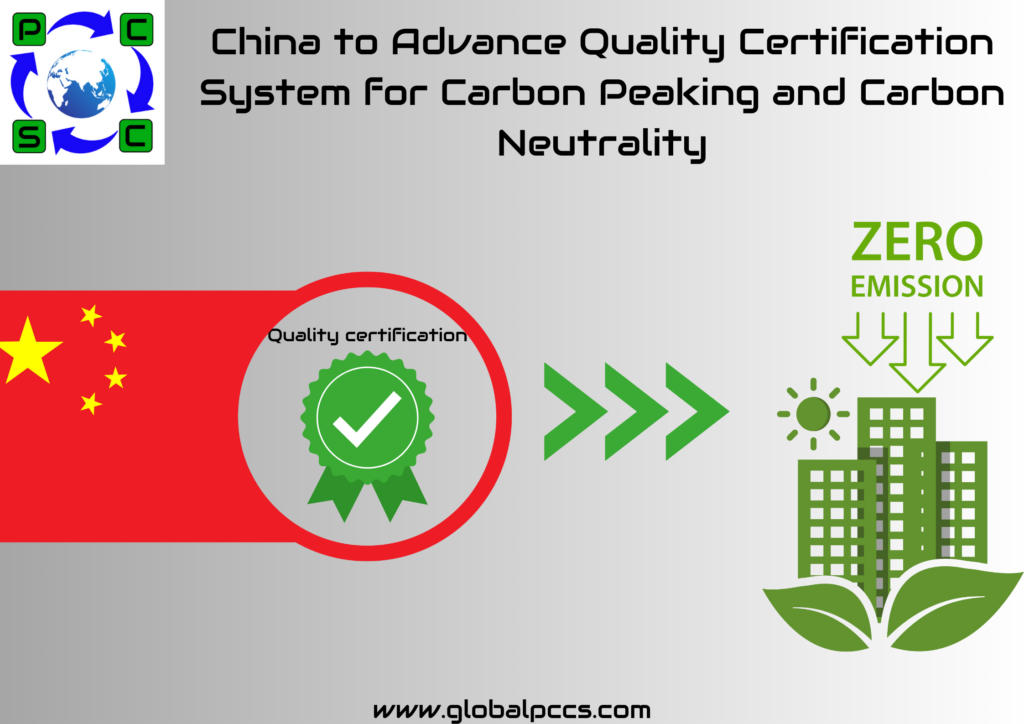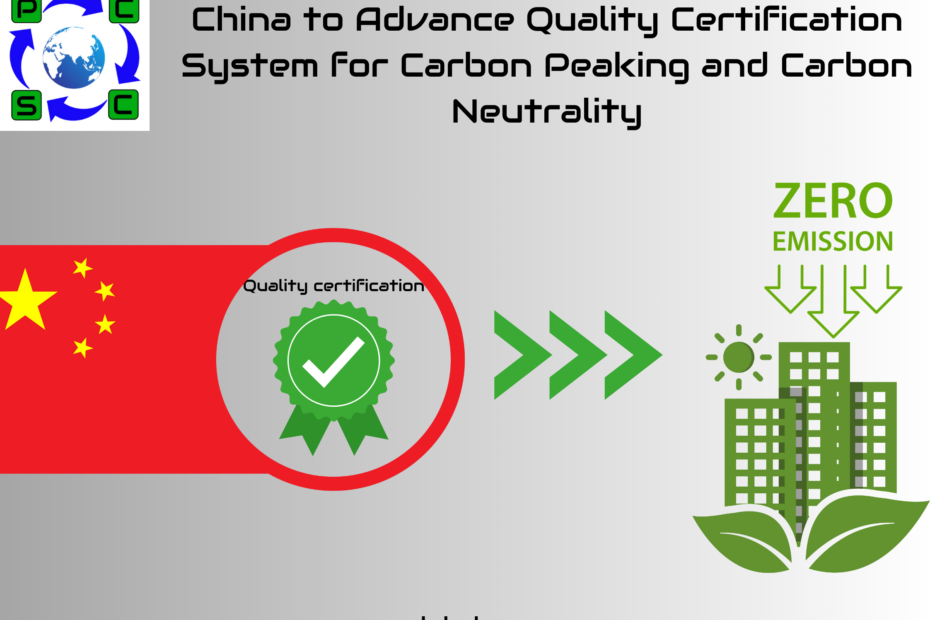
On October 17, 2023, China’s State Administration for Market Regulation (SAMR) issued the Implementation Opinions on Coordinating the Use of Quality Certification Services to Carbon Peaking and Carbon Neutrality.
By 2025, the Opinions aim to have a carbon peaking and carbon neutrality certification system in place. The state will handle the task from beginning to end, but institutions can choose to actively participate in certification work at their discretion. Several important certification schemes include,
- Direct carbon-related certification systems such as product carbon labeling certification, carbon-related management system and service certification, etc.
- Indirect carbon-related certification systems such as green product certification, energy management system certification, and environmental management system certification.
Main Target
- Establish a sound direct carbon-related certification system based on emission verification and promote a product carbon labeling certification system at a national level.
- Enhance existing indirect carbon-related certification systems for green products, energy management and environmental management by fostering collaboration within the industrial chain and supply chain.
- Strengthen filing management for carbon-related certification rules to ensure improved oversight of certification agencies.
- Engage in extensive research on carbon-related certification technologies, drive innovation, and develop green and low-carbon certification projects that align with market demand with the aim of increased supply of certification systems.
- Encourage the exploration of product carbon footprint and carbon neutrality certification in key sectors and established industries.
- Develop a mechanism for evaluating the effectiveness of the carbon peaking and carbon neutrality certification system and conduct regular assessments of the system’s construction, implementation, and application outcomes.
- Facilitate the establishment of a multi-level carbon peak and carbon neutral certification and acceptance mechanism encompassing government, industry, and society.
- Strengthen international exchanges and cooperation on carbon peaking and carbon neutrality certification.








 Authorised IMDS & CDX Training & Consulting partner for
Authorised IMDS & CDX Training & Consulting partner for





